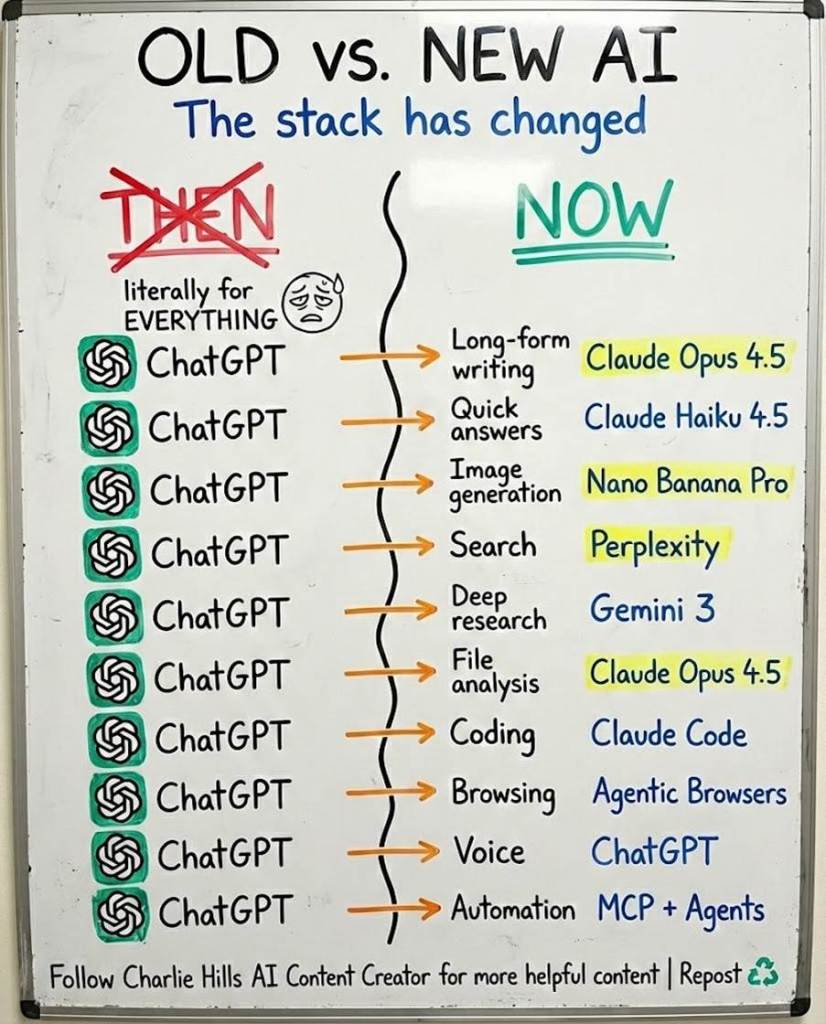1. A Guardian ‘long read’ first today, What AI doesn’t know: we could be creating a global ‘knowledge collapse’, by Deepak Varuvel Dennison https://www.theguardian.com/news/2025/nov/18/what-ai-doesnt-know-global-knowledge-collapse
Dad’s tumour showed signs of being malignant, so the hospital doctors and my sister (also a doctor) strongly recommended surgery. My parents were against the idea, worried it could affect my dad’s speech. This is usually where I come in, as the expert mediator in the family. Like any good millennial, I turned to the internet for help in guiding the decision. After days of thorough research, I (as usual) sided with my sister and pushed for surgery. The internet backed us up. We eventually got my dad to agree and even set a date. But then, he slyly used my sister’s pregnancy as a distraction to skip the surgery altogether. While we pestered him every day to get it done, he was secretly taking his herbal concoction. And, lo and behold, after several months the tumour actually shrank and eventually disappeared. The whole episode earned my dad some bragging rights.
2. A lecture by Neil Postman from 1998 that has stood the test of time very well, Five Things We Need to Know About Technological Change https://student.cs.uwaterloo.ca/~cs492/papers/neil-postman–five-things.html
Here’s Postman’s conclusion – promise me you’ll read the whole piece, though!
And so, these are my five ideas about technological change. First, that we always pay a price for technology; the greater the technology, the greater the price. Second, that there are always winners and losers, and that the winners always try to persuade the losers that they are really winners. Third, that there is embedded in every great technology an epistemological, political or social prejudice. Sometimes that bias is greatly to our advantage. Sometimes it is not. The printing press annihilated the oral tradition; telegraphy annihilated space; television has humiliated the word; the computer, perhaps, will degrade community life. And so on. Fourth, technological change is not additive; it is ecological, which means, it changes everything and is, therefore, too important to be left entirely in the hands of Bill Gates. And fifth, technology tends to become mythic; that is, perceived as part of the natural order of things, and therefore tends to control more of our lives than is good for us.
Neil Postman’s Wikipedia entry https://en.wikipedia.org/wiki/Neil_Postman
Thanks to Alan Maley for the first two items today!
3. That Postman lecture sits well alongside this piece about the stock market AI bubble for the London Review of Books by John Lanchester, King of Cannibal Island https://www.lrb.co.uk/the-paper/v47/n23/john-lanchester/king-of-cannibal-island
The tulip bubble is the most famous financial bubble in history, but as historical examples go it is also, in one crucial respect, misleading. That’s because anyone can see the flagrant irrationality which was at work. At peak tulip madness in 1637, rare bulbs were so expensive that a single one was worth as much as a fancy canalside house in Amsterdam. You don’t have to be Warren Buffett to see that the disconnect between price and value was based on delusional thinking.
4. Four of my NILE colleagues are telling The NILE Online Story at 16:00 UK time tomorrow, Wednesday 17th December. More info and registration here (LinkedIn) https://www.linkedin.com/posts/nileelt_nile30at30-nileelt-elt-activity-7406298633987444737-e20o/?utm_source=share&utm_medium=member_desktop&rcm=ACoAAAwEhnMBelLV9HB9ZxhbMmNm1K_LeUUtChc
or here if the LinkedIn link doesn’t work https://nile-elt.zoom.us/meeting/register/eZTm4SM-Qu-NNLa1TbN9BQ#/registration
Key decisions, challenges and turning points in the evolution of the NILE online programme with a discussion of what has worked and what hasn’t, learning points and practical insights.
Warts and all, promise!
5. I wasn’t quite sure what to say about the USA’s new National Security Strategy, https://www.whitehouse.gov/wp-content/uploads/2025/12/2025-National-Security-Strategy.pdf
so I asked AI to summarise it for me. PDF of the summary and the strategy itself below. Here’s the beginning of the summary:
The document outlines the National Security Strategy of the United States, emphasizing the need for a coherent foreign policy focused on protecting national interests and ensuring the country’s safety, sovereignty, and global influence.
National Security Strategy Overview
The National Security Strategy outlines the United States’ goals and principles for maintaining national strength and security in a changing global landscape.
Restoration of American Strength and Security
The strategy emphasizes a return to strong national defense and international respect after years of perceived weakness.
• The administration claims to have restored U.S. borders and military strength.
• A $1 trillion investment was made to strengthen the military.
• NATO allies committed to increasing defense spending from 2% to 5% of GDP.
• Eight international conflicts were resolved, including significant peace agreements in the Middle East and Asia.
I was pleasantly surprised to see the word ‘claimed’ in the first bullet point below but less pleased to see ‘were resolved’ in the fourth!
6. And, finally, a lovely piece on Henry Oliver’s Substack, The Common Reader, about John Carey, who died last week (and with whom I had the surprisingly unintimidating pleasure of working on a number of occasions) https://www.commonreader.co.uk/p/john-carey-the-common-readers-professor

